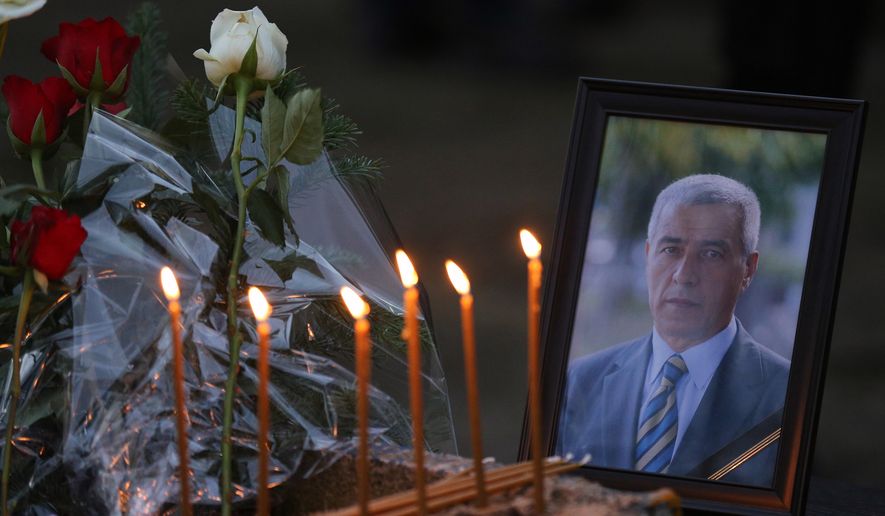U.S. officials are scrambling to ease tension between Serbia and Kosovo after a local leader accused of war crimes the late-1990s conflict that tore through the region was gunned down Tuesday in a city sharply divided between ethnic Serbs and Albanians.
“We urge all sides to avoid dangerous rhetoric and remain calm at this sensitive time,” the U.S. Embassy in Kosovo said on its website amid fears the death of accused war criminal Oliver Ivanovic could trigger a wider eruption of violence.
The statement, attributed to U.S. Ambassador Greg Delawie, called on regional leaders to “recommit themselves to continue the work toward the normalization of relations and improvement of the lives of the citizens of Kosovo and Serbia.”
Ivanovic, a Kosovo Serb leader, was reportedly shot to death in front of his party office in Mitrovica, a city known for angry divisions between ethnic Serbs and Albanians living there.
Serbian media reported that there were no witnesses to the attack and no shots were heard, suggesting the weapon used had been fitted with a silencer, according to Reuters, which also cited reports that Ivanovic was shot at least five times.
The news agency noted that Ivanovic had been convicted in 2016 of war crimes linked to the killings of four ethnic Albanians during the 1998-99 conflict. He was sentenced to nine years in prison, but after a retrial was ordered last year, he was released and allowed to defend himself while free.
Reuters also reported that Serbian President Aleksandar Vucic has described Tuesday’s killing as “an act of terrorism,” but he has so far declined to comment on whether he believed the Ivanovic’s murder was ethnically motivated.
Kosovo declared independence from Serbia in 2008 — after nearly a decade of rule by international powers that came after a NATO bombing campaign ended the late-1990s war. Serbian military forces brutally cracked down on mainly ethnic Albanian Kosovo separatists during the war. Tensions have remained high between ethnic Albanians and ethnic Serbs in some areas of Kosovo over the past two decades.
As many as 50,000 ethnic Serbs are reported to be living today in northern Kosovo, with many seen to be rejecting integration with the predominantly ethnic Albanian state.
While that hangs in the backdrop, Serbia and Kosovo have participated in internationally monitored normalization talks since 2013.
Mr. Delawie called on the Kosovo’s government Tuesday to investigate Ivanovic’s death “swiftly and professionally, and bring the perpetrators to justice.”
According to Reuters, Ivanovic came to prominence in Kosovo shortly after the 1998-1999 war as a leader of the so-called “bridge-watchers” — Kosovo Serbs who sought to prevent the northward movement of Albanians in the city of Mitrovica.
The bridge-watchers were often involved in ethnic violence in the early post-war period, but later disbanded with many members branching out into organized crime, the news agency said.
Ivanovic, according to Reuters, entered politics and became known for a pragmatist stance advocating dialogue and compromise with Kosovo Albanians, though still rejecting Kosovo sovereignty.
• Guy Taylor can be reached at gtaylor@washingtontimes.com.




Please read our comment policy before commenting.